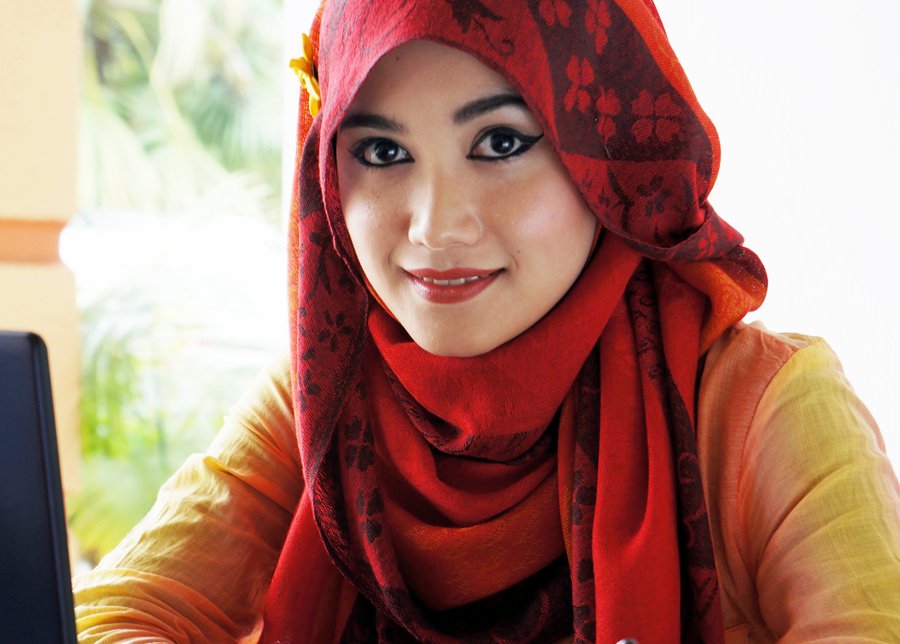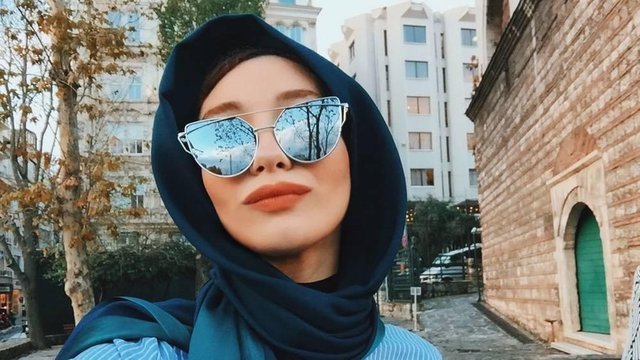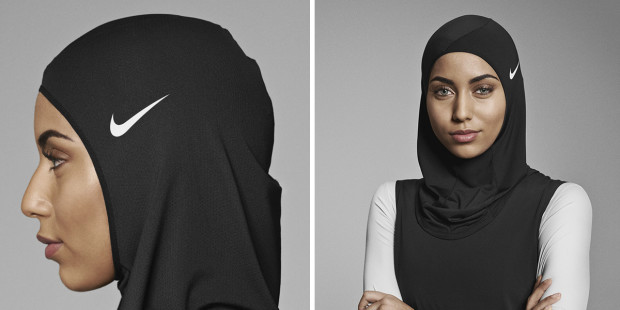Muslim Women’s emancipation in Belgium
Last year I did a presentation about Muslim women’s emancipation in Belgium. I don’t think a lof of people talk about it, specially with all the prejugees it exists. I watched some interviews and read some articles to talk about it.

My personal definition of women’s emancipation :
The one I think that fits the most is: a woman who is free from old social limitations and customs. But it’s also interesting to combine it with this definition of women’s right which is: legal, political, and social rights for women that are equal to those of men.
In this particular case, those definitions are really important because the stereotypes or stigmatizations against the Muslim women are present in our everyday lives. I’m sure I’m not the only one who’s heard some people talking about how they should dress or behave even though they don’t know much about their religion or their own perceptions of women.
In a Political point of view :
In Belgium, we do have a “political Islam party”, it’s called “Islam” and it has been founded in 2012 in Brussels. Their main goal is to transform Belgium into an Islamic state. They would like the reinstatement of the death penalty, and they want to abolish the abortion and euthanasia...
But for most of Belgian, they’re not taken seriously.
In the main Belgian political parties, Muslim are represented. Since 1994, some Maghrebian candidates are in the electoral list. In 2009, a Moroccan woman became minister in the French community. Furthermore, the Belgian Constitution guarantees freedom of worship, Article 19 recognizing "freedom of worship, freedom of public practice and freedom to express opinions on all matters". Belgium protect the civil rights of Muslim people.
On the other hand, since 2009, the Belgian government has forbidden Muslim girls to wear the Hijab at school. This decision has led to a wave of protest among Belgian Muslims. Since then, some Islamic institutes have expressed their willingness to found Islamic schools. The Belgian Ministry of Education said it was a way to abolish discrimination in the education field.
(Are they right, to forbid the Hijab in school institutions because it leads to discriminations ?)
But Belgium was not the first country to forbid it, France did in 2004 too. And at the same time, the western media spread the idea that Muslim women who are wearing the Hijab reflect fanaticism and extremism. All of these discriminations from European policies towards Hijabed women have grown throughout Europe. For example, Marwa El Sherbina has been killed by a German racist in a court.
In the external point of view :
I want to explain how people, like Christians, atheists, people, see them.
First, I don’t think that perceptions about Muslim women have really changed over the years. “Oppressed, inferior, and unequal” – for many people, these are the first words that come to mind when we talk about women in Islam.
Muslim women’s position in the Belgian society is far from perfect, and discrimination is still present in many crucial areas of life. Since many years, Muslim women have been trying to fight a lot of stigmatizations linked to Islam.
Islam is the second most widespread religion in Belgium. Today there are approximately 400,000 Muslim in Belgium and, depending on the source, between 9 and 15 million in Europe. And yet, despite the opportunities it represents, it is clear that the presence of Muslims and Islam in Belgium and Europe still leads to debates.
30 years ago, people saw the Muslim woman as a dependent woman, as a discreet woman, a woman close to the family values. They were seen as devoted to god and to their husband.
Some feminists saw Islam as misogynistic, violent, and only saw Muslim women as submissive and oppressed. But all these perceptions were instrumentalized by Belgian politicians, by the leaders of our society and by the media. The media have built our perception about Muslim women, through television, movies. Today, it didn’t really change; I would say it became even worse.
Years ago, we faced a right-wing government who didn’t want to do anything to help the empowerment of Muslim women. But our society has changed and so did our state of mind. The Belgian society has the reputation of being open minded, even though we still have a lot of work to do.

Today we can say that we are facing two points of view of how Belgian society sees Muslim women.
1. First of all, a part of the population see them as free and modern. Nowadays we notice that women study, they reach high status in our society, their voices are heard, they fight for their rights, for their positions and their status. There is expansion of job opportunities. As in other areas of life, Muslim women have proven to be resourceful, creative, and dedicated to claiming ownership and responsibility for their faithful lives, both individually and communally.
In an environment which constantly emphasizes how important our physical appearance is through various media, women are constantly facing an unattainable standard of beauty. Although Muslim women are falsely classified as oppressed based on their modest dress, they are in fact liberated from such objectification by the society around them. This modest appearance, which includes Hijabing, highlights a woman’s personality and character instead of her physical figure and promotes a deeper appreciation for who she is as a person.
2. Now, the Muslim women feel integrated, they can go to any school of their choices and can wear a Hijab without, hopefully, being judged. (So actually, Women are empowered with many rights and protections under Islamic law and are honored with a dignified stature in society.)
On the other hand, we see that people can have another state of mind, and due to what is happening right now, people onyly see Islam through stereotypes and so as a dangerous religion.
There is a lot of stereotypes about Muslims.
People think that Muslim women hide themselves behind their husband, that they don’t have their word to say on anything and that they have to be discreet. Sometimes, they live in a community of Muslim women and they never want to go out of it All of these are stereotypes but unfortunately this is how some people see Muslim women.
The roots of the problem?
Well I think that since Europe has faced the terrorist’s attacks, people are afraid and see the Muslim has terrorists and we all know that some people don’t do, or try, to make the difference.
It seems like the roots of the non-empowerment of Muslim’s women are due to stereotypes given by the media and more precisely to a misunderstanding from people who in fact( don’t know anything about Islam, the Koran or the Hijab. If people were more aware and knew at least some Muslims, if people talked with them, it could be easier for them to feel integrated. Of course, I think, our generation has more facilities to be open minded and to be informed about the religion. We were born in a multicultural society. They are frequently victims of stigmatization bound to their religion, or to their culture and tradition. They think that prejudices are in big part the fault of the society we live in. This society projects a certain image of the “ideal” woman and the Muslim women do not follow it. Moreover, people are afraid of the difference and because they’re different, they’re less accepted.
They have to fight for their rights or for the work they want to do. They wish to be doctors, researchers and not to be on the margins of society. Those women want so bad to be able to wear the Hijab on the street or at work without causing problems or shock people.
Their feminism and their religion go together, there is no separation to do. For them, their feminism is inspired by Islam and the message of equality between human beings in the Islamic society. We can say that they have their own definition of feminism.
When we say society, it also means their society. Most of them want to be imam, to play important roles in their religious communities. They want to have the same access as men.
But it is not easy because Muslim society is very conservative. These women have encountered problems in their communities with men but also with women. So they are trying to organize events to make the population aware of women’s rights. And by working in their communities, they reveal another image of women who are not submitted to their husbands.
To emancipate herself, the Muslim woman encounters enormous obstacles in her journey.
These obstacles come either from within their community, in which they have to fight against relations of strength with the men, and at the same time it comes from our society in which they’re categorized as too different and inferior.
In the testimonies that Ghaliya collected all of these women are activists, people who want to change the society. What they mean is that the context has changed; they want to keep the Islamic tradition but to change their place inside as women. What they want above all is to live fully as a woman, a citizen, a Muslim.
We thought we would make a quick parenthesis on how big brands are starting to commercialise the Hijab or the hijab.
A lot of people may not think that because of their Hijab, but Muslim women are modern. They like to use bright colours, prints and they have a true freedom in the manner of wearing their Hijab. Many British and American Muslims constantly adapt their Hijab to their dress. Big brands see a opportunity of a new market to conquer. Indeed, Muslims represent 22% of the population and their clothing requirements have too often been neglected by the different ready-to-wear clothing brands and by European and international haute couture houses.

International brands are beginning to invest in the innovative Islamic fashion market.
Dolce & Gabbana and her first collection for Muslim women (in 2015), Oscar de la Renta and his collection for the Ramadan (also in 2015), Chanel passed her models in luxurious slippers in Dubai for her 2015 cruise collection. Less luxurious brands like Mango for Spain, Uniqlo for Japan all designed collections for Muslim women. The H&M brand has also invested in its own way this innovative market segment, using a Hijabed woman as a model for one of its advertising campaigns.
Indeed, Mariah Idriss, is the first model Hijabed in an advertisement for H & M. The young woman of 23 years, installed in London made her debut as a model in a spot of the Swedish mark. This advertisement has generated many comments of congratulations on the social networks of the sign H&M.
The Qur'an tells us exactly about what women should or shouldn't do. What are they rights and duties exactly according to the holy book?
First of all, let's begin by the beginning: the creation of humans. The Qur'an states that even if there are empirical differences among humans, such as their gender, race or ethnicity, all human have a natural equality. If there should be a ranking between them, it would be based on moral choices.
So, consequently, no man is superior to a woman just because of his gender.
Guardianship really questions this part of the Qur'an. This guardianship was supposed to be a mechanism that would allow young and inexperienced women to solicit advice for her father about a potential future husband in order to give them a sort of protection. But in the end, the daughter was free to follow her father's advice or not and to make her own decision. This was not interpreted the right way and the jurists made laws saying that the fathers could protect their daughters from an 'ineligible husband'. Of course, who can really tell who is eligible except the woman who wants to marry herself? This led to a lot of father choosing their daughter's husband and to forces marriage.
Women should be fully financially independent and are in no case forces to do any housework. This is often not the case. The husband watches over his wife's expenses and she has nothing to say against it. One of the greatest stereotype about Muslim marriages is polygamy. It is really controversial in our western view. But the Qur'an, while not condemning polygamy, clearly favours monogamy. It says in short that if you can show fairness to all of your wives and deal with them properly, then you should only have one wife. Jurists stated that if a second marriage could cause the first wife harm, it should be avoided. Most women are unaware of their right to do so, which makes their lives really difficult if they want to leave their husbands. Muslim women also fear to lose the custody of their children, which are more likely granted to the father if the boys are over six and the girl are in their puberty.
There is no restriction is Islamic law that says a woman cannot work or have a profession. Covering is also technically optional. Muslim women can choose to wear a Hijab or not. Some feminists chose to continue to wear it because they like them.
I hope you like this article! Tell me what you think about it ! Have a great day!
I like your plublish!! I think the same that you " My personal definition of women’s emancipation :
The one I think that fits the most is: a woman who is free from old social limitations and customs. But it’s also interesting to combine it with this definition of women’s right which is: legal, political, and social rights for women that are equal to those of men. "
Thanks! :)
Between Mogadischu and Kabul there is more than enough space for you Satanist crazy people. I don't have any sympathies for Mohammed, the childfucker and his mentally retarded cult. I will therefore downvote you.
@doodlebear Instead of leaving this comment after 30 seconds this post was published you should or
That being said, whether you agree or don't agree with what is in this post, we are adult enough to talk/discuss about this subject. Thats is also why @Paulinewery created this post.
Steemit is not a place for pure HATE and RACISM! So @doodlebear, go hate somewhere else.
@paulinewery, I loved the article and think it's great you brought this up. I agree on most of the points and we are definitely growing in this. Mutual respect is a base value for me, why for me personally I find it important to respect them.
And you definitely earn a big upvote for this post! Don't let this pure hater keep you from creating your content.
Go fuck yourself? I suggest we talk again when one of those halal beheaders forces your daughter under a burka.
Gonna a little bit crazy? First annonying @cabernet, now here?
fick dich
Scheinst ein ganz reifer Mensch zu sein :)
So was sagt man nicht! 👹